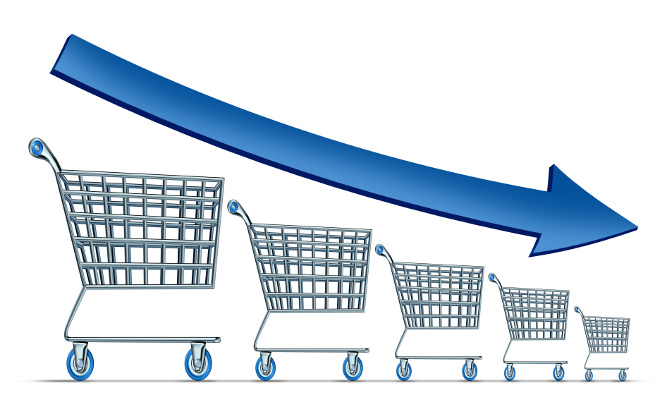Supermarkets have experienced a poor run in 2014 so far, with all of the Big Four reporting consistently falling sales as consumers turn to discount brands for their weekly shop. Unfortunately, it appears that this negative fortune is set to continue as Sainsbury’s has reported a third consecutive quarter of falling sales.

According to the latest trading report released by the UK’s second largest supermarket brand, like for like sales excluding fuel fell by 2.8 per cent in the three months to the 30th of September. Although this was slightly better than expected by analysts, who predicted a drop of between 3.5 per cent and 4 per cent, the figure stands in stark contrast to the same time last year when Sainsbury’s was noting impressive sales growth and catching up to key rival Tesco in terms of market share.
Total sales, which include data from stores open for less than a year, fell by 0.8 per cent during the quarter, indicating that the investments Sainsbury’s is making into expanding its convenience store network have had much less of an impact than desired. Unsurprisingly, this negative news was also reflected in its market share, which fell from 16.6 per cent to 16.2 per cent – making Asda the only member of the Big Four to have retained its market share in the current financial year.
New chief executive Mike Coupe, who took the reins from Justin King in July, tried to retain a positive outlook whilst presenting his first trading report in charge.
He said; “Clearly in the last few months the pace of change in our industry has changed beyond all recognition.
“Customers are shopping very differently to the way they were shopping even a year ago, so we are seeing an increase in the number of outlets available to them – and they are shopping much more frequently and little and often shopping so these trends are changing very rapidly.
“Clearly there are challenges in the marketplace, you can’t deny that, but there are equally fantastic opportunities for us.”
Sadly, Mr Coupe’s optimism was not translated into Sainsbury’s forecasts for the second half, as it believes sales performance will be largely “similar to the first half.” During the first half, like for like sales excluding petrol fell by 2.1 per cent, indicating that executives are less than confident about the impact the Christmas trading period will have upon the brand’s performance.
Director of retail consultancy Retail Vision, John Ibbotson, predicts that the Big Four will continue to lose out to discounters for some time yet.
He says; “With everyone reducing prices and food inflation low, Sainsbury’s has got its work cut out.
“Cash strapped consumers are reigning in on discretionary spending and increasingly deserting the big boys for the low cost discounters, or treating themselves to a premium upmarket experience in Waitrose.
“Expect this situation to go on for years, with the low cost discounters the only winners – the only limit is how many stores they can open.”
Do you think the “rise of the discounters” will eventually force the Big Four out of business?
Previous Post
British Land’s West End Office Portfolio almost 100% let following Portman Square Deal